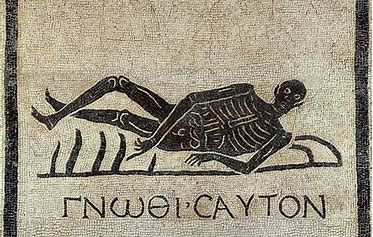Professor David Scaer wrote this marvelous little citation with a queasy biological metaphor that gets one thinking. Human beings have the propensity to not soul search. This inability is detrimental to relationships in all areas of life. We are now in Lent and Wednesday we gave perhaps one of the most beneficial slaps in the face human beings can get – having someone stick some ashes on your forehead and tell you that you are dust.
“Self-reflection generally produces predictably favorable results. To create an image of ourselves with which we can live, we sift out unpleasant evidences and preserve positive ones. If we are successful, we can propel ourselves to greater excellence in our own eyes. Socrates said “know thyself,” but we can know ourselves as little as we can know the ways of God. You get the idea. Should we ever reach that point where we get close to discovering our true selves, our memories self-ignite and become the kidneys of our minds to eliminate the uncomplimentary residue that clogs the arteries of our self-esteem. James did not go far enough when he spoke of a man who observes his natural face in a mirror and then forgets how he looked (Jas 1:23-24). It is more likely that he was looking in a glass darkly and did not see
his appearance in the first place. This inability for self-critique also applies to communities of faith, whether it be the Evangelical Lutheran Church in America (ELCA), the Lutheran Church-Missouri Synod (LCMS), or the Roman Catholic Church. Even the most sophisticated public relations attempts to polish the mirror does little more than reinforce what we already think of ourselves. Self-image rarely corresponds to the way others see us. The prayer “Lord, cleanse thou me from secret faults” asks for their removal and not that they should be known to us”.
γνῶθι σαὐτόν is the Greek. The impossibility should not obliterate trying. Standing before the Law of God and contemplating who we are in confession is a good start.


